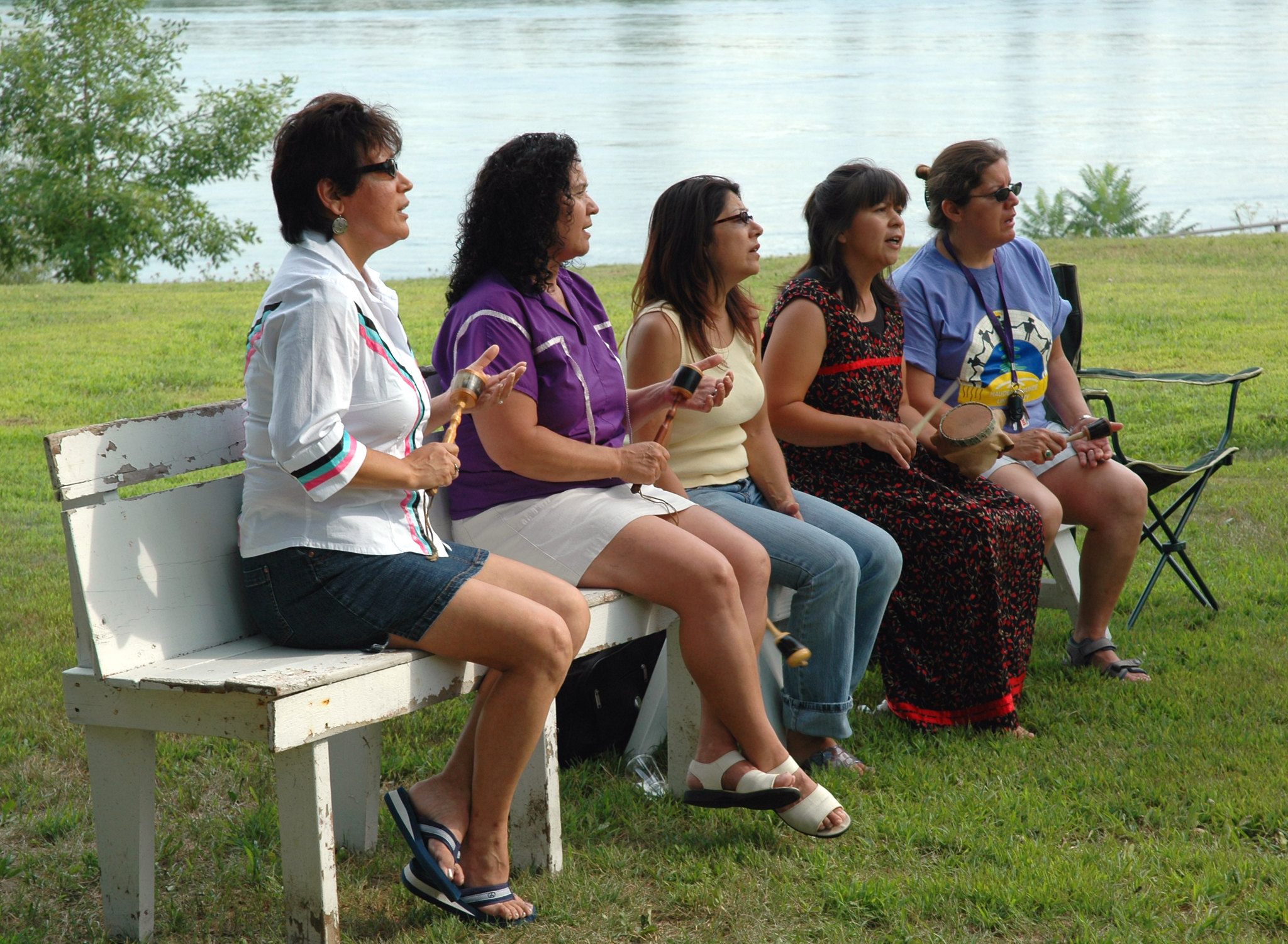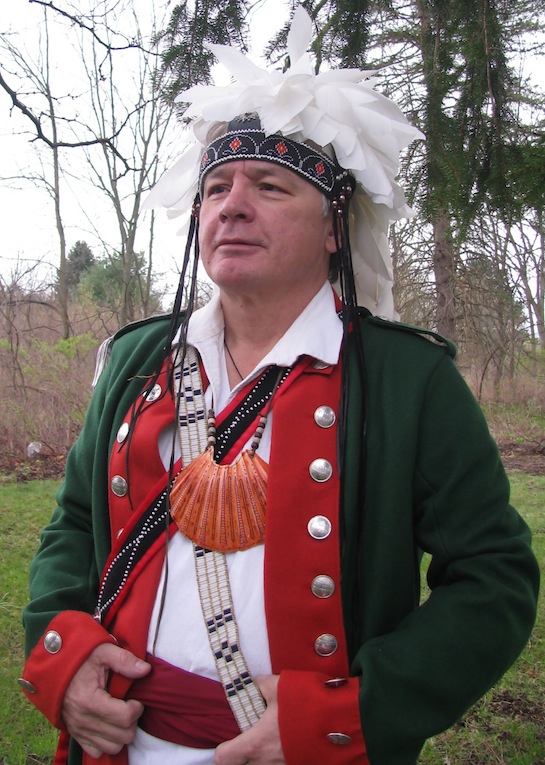Indianz.Com > News > Doug George-Kanentiio: Why the Mohawk people never had ‘chiefs’

Why Do We Need Chiefs?
Monday, January 4, 2021
It is well established, and universally acknowledged, that the Rotinosionni (Haudenosaunee Six Nations Iroquois) created a unique system of governance based upon natural law as codified by Skennenrahowi, the Peacemaker. He worked with the individual nations for many years before establishing the world’s first true alliance of free nations, now the oldest united nations.
In doing so he replaced the rule of despots with leaders who were selected by the people with strict qualifications as to candidates and with the admonition that each person placed in office were bound to adhere to the will of the people and were subject to impeachment should they do otherwise.
There was no such thing as ‘chiefs’ in Rotinosioni and Kaienkehaka (Mohawk) history. The leaders were rotiane and iakoiane, literally “nice people” who stood no taller, nor were more distinct, than the people they represented. They agreed to abide by the Great Law of Peace and the laws of nature, that they were bound by decisions made by the people and could not act as individuals or to assume they had singular power to enact policies, agreements or any other contract without the express approval of their clans.
Skennenrahowi had keen insight into the minds of human beings and knew that greed, ambition and power were great temptations which would inevitably lead to corruption and conflict should the leaders ignore their constitutional limitations. This is why we never had “chiefs”.
Skennenrahowi also realized that the control over the means of production and distribution of resources by a power elite would inevitably happen if the land was subjected to the control of males, hence the provision in the Great Law which specifically gives women the ultimate authority over all territorial issues including the common wealth of the nations. Every economist knows that the ultimate power in any and all human societies is retained by whatever faction dominates food cultivation and dissemination of its natural resources. The Peacemaker insured this jurisdiction would be held by the lifegivers and by doing so would prevent the men from suppressing women by subjecting them into a subservient role. No other society or nation in the world matched the Rotinosionni when it came to respecting the natural freedoms of women.

chief (n.)
c. 1300, “head, leader, captain; the principal or most important part of anything;” from Old French chief “leader, ruler, head” of something, “capital city” (10c., Modern French chef), from Vulgar Latin *capum, from Latin caput “head,” also “leader, chief person; summit; capital city” (from PIE root *kaput– “head”). Meaning “head of a clan” is from 1570s; later extended to headmen of Native American tribes (by 1713; William Penn, 1680s, called them kings). Commander-in-chief is attested from 1660s.
What we know is that this word was forced upon our people since it was easier to bribe one male, or to seduce them with unilateral power, than to deal with a council of women. As we note the word is not indigenous nor rooted in aboriginal customs. It is alien, an imposition. When the Europeans had their designated “chief” they could manipulate that person to sign away our collective rights and our lands. I have yet to find any document in which the Rotinosionni women agreed to sell or cede any of our lands but there is proof they opposed those “chiefs” who did.
The followers of Skanietariio (Handsome Lake) know that selling of land by these “chiefs” was among the most serious of crimes with eternal punishment as a penalty. If this is true I fear for the spirit of those Mohawks who have sold our lands or are now in the process of doing so.
In 1984, at my home community, the decision was made by a few individuals to create an entity called the Mohawk Council of Akwesasne (on the “Canadian” side of our territory) which would consist of 12 “chiefs” and one “grand chief” which is nonsensical given that a “chief” is the ultimate ruler. It would be like having a “grand prime minister” or a “grand president”. It is a title which is dangerous as it gives the holder the illusion they have more authority than anyone else.
And we now have “chiefs” at the St. Regis Tribal Council (the “American side section) when, under law, they are trustees. So too, the MCA should be referred to as council members with a chairperson, not a “grand chief”.
The outside governments are eager to deal with these “chiefs” rather than the rotiane and iakaione. They find it easier to reward them with wealth, easier to have them sell off our ancestral territory, easier for these “chiefs” to concede jurisdiction since they are conditioned to obey the wishes of federal bureaucrats rather than adhere to ancestral laws.
We see these ‘chiefs” enforcing American and Canadian rules on Mohawk territory, we see them accept money for the theft of our lands, we see them becoming separate from the ancient customs upon which all of our status, history and identity stem from.
We see this in the compromises made in the Dundee lands and in the eagerness of the St. Regis Mohawk Tribe to trade our 9,900,000 acres of land for college tuition remittance and a few dollars which will come from the tribe’s casino.
In response, we must have the women take charge. We must have some kind of popular referendum or clan session in which we examine the history of the “chief” system and the harm it is brought to us. We must then insist the Tribe and the MCA desist from using the word so no longer will there be a “grand” anything but that those two colonial entities be called for what they are: trustees and councillors.
In this year of remarkable change it may also be time for other Native nations to return and revive their ancestral governance with the appropriate titles.
c. 1300, “head, leader, captain; the principal or most important part of anything;” from Old French chief “leader, ruler, head” of something, “capital city” (10c., Modern French chef), from Vulgar Latin *capum, from Latin caput “head,” also “leader, chief person; summit; capital city” (from PIE root *kaput– “head”). Meaning “head of a clan” is from 1570s; later extended to headmen of Native American tribes (by 1713; William Penn, 1680s, called them kings). Commander-in-chief is attested from 1660s.

Doug George-Kanentiio, Akwesasne Mohawk, is the
vice-president of the Hiawatha Institute for Indigenous Knowledge. He has served
as a Trustee for the National Museum of the American Indian, is a former land
claims negotiator for the Mohawk Nation and is the author of numerous books and
articles about the Mohawk people. He may be reached via e-mail at:
Kanentiio@aol.com or by calling 315-415-7288.
Note: Content copyright © Doug George-Kanentiio
Search
Filed Under
Tags
More Headlines
Native America Calling: Lumbee Nation secures its sovereign status
Native America Calling: The Year in Native News
Native America Calling: Native music in 2025
Native America Calling: Amid Greenland’s independence push, Denmark accounts for colonial blunders
Senate Committee on Indian Affairs sets business meeting and hearing
Native America Calling: Saving historic architecture and other important places
VIDEO: H.R.2400, the Pit River Land Transfer Act of 2025
VIDEO: H.R.3620, the Southcentral Foundation Land Transfer Act of 2025
VIDEO: H.R.2815, the Cape Fox Land Entitlement Finalization Act of 2025
AUDIO: H.R.2400, the Pit River Land Transfer Act of 2025
AUDIO: H.R.3620, the Southcentral Foundation Land Transfer Act of 2025
AUDIO: H.R.2815, the Cape Fox Land Entitlement Finalization Act of 2025
Native America Calling: Native in the Spotlight with Randy Taylor
NAFOA: 5 Things You Need to Know this Week (December 15, 2025)
Chuck Hoskin: Cherokee Nation celebrates milestone in tribal gaming
More Headlines
Native America Calling: The Year in Native News
Native America Calling: Native music in 2025
Native America Calling: Amid Greenland’s independence push, Denmark accounts for colonial blunders
Senate Committee on Indian Affairs sets business meeting and hearing
Native America Calling: Saving historic architecture and other important places
VIDEO: H.R.2400, the Pit River Land Transfer Act of 2025
VIDEO: H.R.3620, the Southcentral Foundation Land Transfer Act of 2025
VIDEO: H.R.2815, the Cape Fox Land Entitlement Finalization Act of 2025
AUDIO: H.R.2400, the Pit River Land Transfer Act of 2025
AUDIO: H.R.3620, the Southcentral Foundation Land Transfer Act of 2025
AUDIO: H.R.2815, the Cape Fox Land Entitlement Finalization Act of 2025
Native America Calling: Native in the Spotlight with Randy Taylor
NAFOA: 5 Things You Need to Know this Week (December 15, 2025)
Chuck Hoskin: Cherokee Nation celebrates milestone in tribal gaming
More Headlines